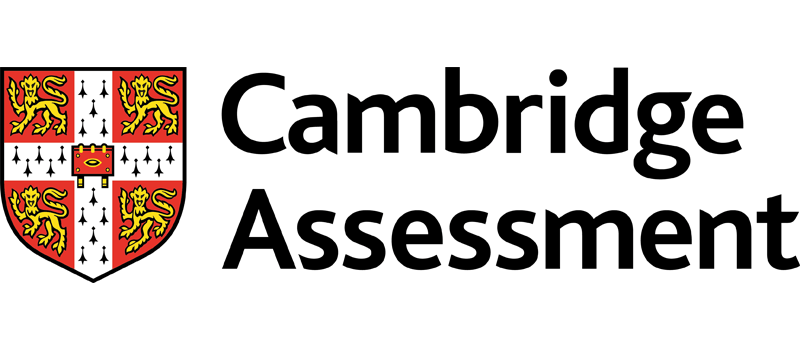
Sustainable Leadership and Organization Performance
Course ID: 2507142701098EGI
Course Dates : 14/07/25 Course Duration : 5 Studying Day/s Course Location: Barcelona, Spain
Language: Bilingual
Course Category: Professional and CPD Training Programs
Course Subcategories: Leadership and Management Excellence
Course Certified By: * Projacs Academy
* Professional Training and CPD Programs
Certification Will Be Issued From :
KSA
Course Fees: £4,838.34
Vat Not Included in the price. VAT may vary depending on the country where the course or workshop is held.
Click to Pay
Date has passed please contact us Sales@e-s-hub.com
Course Information
Introduction
The concept of sustainable leadership has emerged as a cornerstone for organizations striving to thrive in an increasingly complex and interconnected world. As global challenges such as climate change, social inequality, and resource scarcity intensify, leaders are tasked with balancing profitability with purpose. This course delves into the intersection of sustainability and leadership, equipping participants with the tools to drive organizational performance while fostering long-term resilience. Drawing on seminal works like John Elkington’s Triple Bottom Line framework and Michael Porter’s Shared Value theory, this program underscores the importance of integrating environmental, social, and economic considerations into strategic decision-making.
One of the most pressing gaps in contemporary leadership practices is the inability to align short-term goals with long-term sustainability objectives. Many organizations struggle to embed sustainability into their core operations, often treating it as a peripheral initiative rather than a central driver of value creation. For instance, a 2022 McKinsey report revealed that only 30% of companies successfully translate sustainability commitments into measurable outcomes. This course addresses these challenges by providing actionable strategies to bridge the gap between intention and implementation, ensuring that sustainability becomes a competitive advantage rather than a compliance burden.
The benefits of mastering sustainable leadership extend beyond individual career growth; they ripple across entire organizations. Leaders who embrace sustainability foster cultures of innovation, enhance employee engagement, and build trust with stakeholders. A notable example is Patagonia, whose commitment to environmental stewardship has not only strengthened its brand loyalty but also driven consistent financial growth. By adopting similar principles, participants will be empowered to position their organizations as industry leaders in sustainability, unlocking new opportunities for collaboration, investment, and market differentiation.
This course draws on established theories and frameworks to provide a robust foundation for learning. Participants will explore systems thinking, adaptive leadership, and stakeholder theory, among others, to understand how sustainability can be embedded into organizational DNA. Additionally, the program incorporates insights from industry trends, such as the rise of ESG (Environmental, Social, and Governance) metrics and the growing demand for transparent reporting. These elements ensure that the content remains relevant and applicable to real-world scenarios.
Real-world case studies further illustrate the transformative potential of sustainable leadership. Consider Unilever’s Sustainable Living Plan, which has reduced the company’s environmental footprint while increasing its revenue streams. Similarly, Microsoft’s pledge to become carbon negative by 2030 demonstrates how ambitious sustainability goals can drive technological innovation and operational efficiency. Through these examples, participants will gain a nuanced understanding of how sustainable leadership can catalyze both organizational and societal progress.
Ultimately, this course is designed to equip leaders with the skills and mindset needed to navigate the complexities of the modern business landscape. By blending theoretical knowledge with practical applications, it empowers participants to create lasting impact—both within their organizations and in the broader community. Whether you are a seasoned executive or an emerging leader, this program offers the tools and insights necessary to lead with purpose and achieve sustainable success.
Objectives
By attending this course, participants will be able to:
Analyze the key principles of sustainable leadership and their implications for organizational performance.
Evaluate existing sustainability frameworks and identify opportunities for integration within their organizations.
Design strategies to align sustainability goals with business objectives, ensuring measurable outcomes.
Apply systems thinking to address complex challenges and foster cross-functional collaboration.
Implement best practices for stakeholder engagement and communication around sustainability initiatives.
Assess the role of ESG metrics in driving accountability and enhancing organizational reputation.
Develop a personal action plan to champion sustainable leadership within their professional context.
Who Should Attend?
This course is ideal for:
Senior executives and managers seeking to integrate sustainability into their strategic planning processes.
HR professionals responsible for fostering workplace cultures aligned with sustainability values.
Consultants and advisors supporting organizations in their sustainability journeys.
Team leaders and project managers aiming to embed sustainable practices into day-to-day operations.
These groups will find the course valuable as it provides practical tools to address the growing demand for sustainable leadership. While the content is accessible to beginners, it also offers advanced insights for intermediate practitioners looking to deepen their expertise. The program is particularly suited for those in industries such as manufacturing, technology, finance, and consumer goods, where sustainability is becoming a critical differentiator.
Training Method
• Pre-assessment
• Live group instruction
• Use of real-world examples, case studies and exercises
• Interactive participation and discussion
• Power point presentation, LCD and flip chart
• Group activities and tests
• Each participant receives a 7” Tablet containing a copy of the presentation, slides and handouts
• Post-assessment
Program Support
This program is supported by:
* Interactive discussions
* Role-play
* Case studies and highlight the techniques available to the participants.
Daily Agenda
The course agenda will be as follows:
• Technical Session 08.30-10.00 am
• Coffee Break 10.00-10.15 am
• Technical Session 10.15-12.15 noon
• Coffee Break 12.15-12.45 pm
• Technical Session 12.45-02.30 pm
• Course Ends 02.30 pm
Course Outlines
Foundations of Sustainable Leadership
Introduction to sustainable leadership and its relevance in modern organizations.
Overview of key frameworks: Triple Bottom Line, Shared Value, and Stakeholder Theory.
Understanding the business case for sustainability: Risks and opportunities.
Case study analysis: Lessons from industry leaders like Patagonia and Unilever.
Day 2:
Systems Thinking and Strategic Alignment
Principles of systems thinking and their application to sustainability challenges.
Aligning sustainability goals with organizational vision and mission.
Identifying barriers to implementation and strategies to overcome them.
Group exercise: Mapping sustainability initiatives to business objectives.
Day 3:
Stakeholder Engagement and Communication
Techniques for effective stakeholder mapping and prioritization.
Building trust through transparent and inclusive communication.
Leveraging storytelling to inspire action and commitment.
Workshop: Crafting a compelling sustainability narrative.
Day 4:
Metrics, Accountability, and Compliance
Introduction to ESG metrics and their role in driving accountability.
Tools for measuring and reporting sustainability performance.
Navigating regulatory requirements and industry standards.
Case study: Microsoft’s carbon-negative strategy and its implications.
Day 5:
Action Planning and Future Trends
Developing a personal action plan for sustainable leadership.
Exploring emerging trends: Circular economy, green technologies, and net-zero goals.
Strategies for fostering innovation and continuous improvement.
Final reflections and peer feedback session.



















































